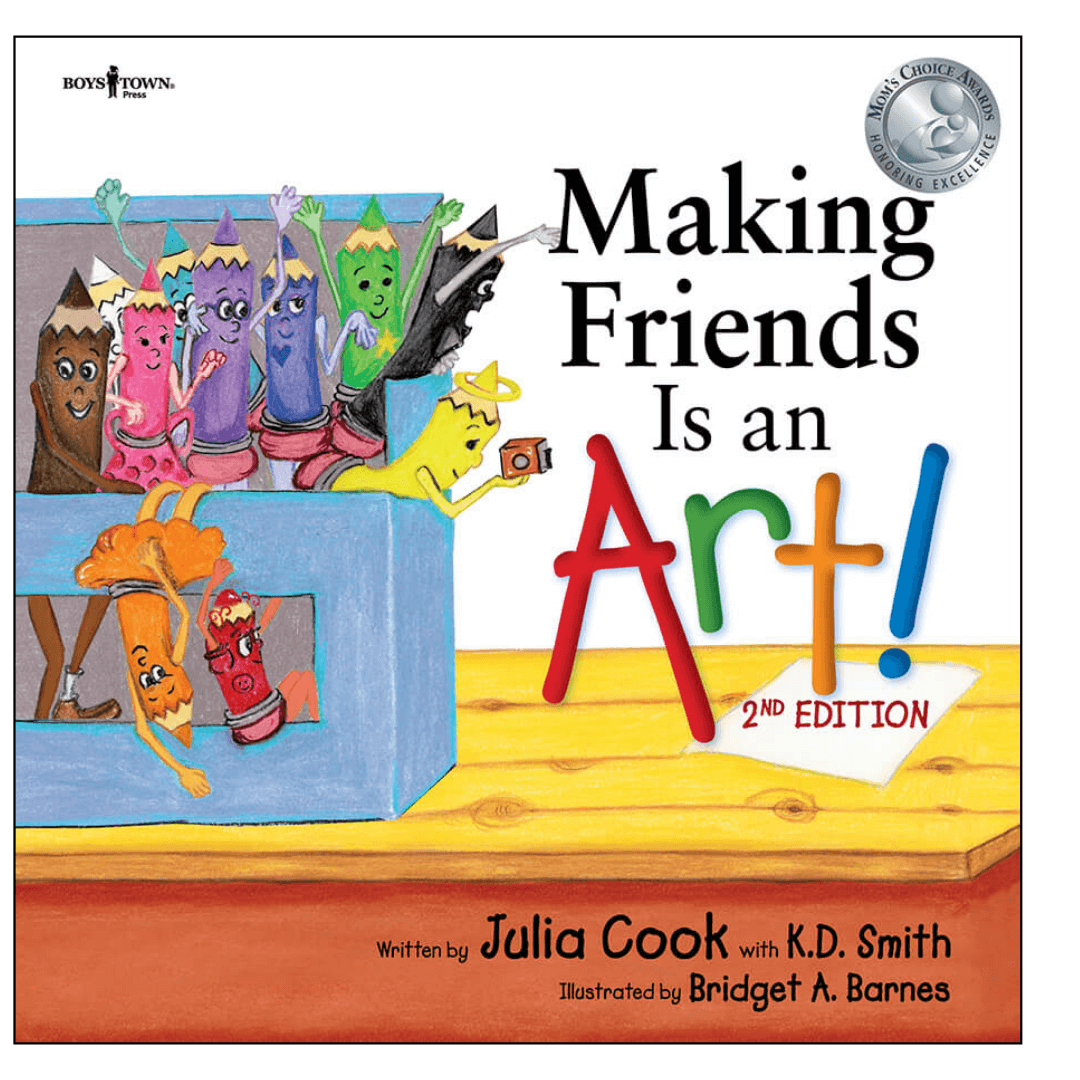Making Friends Is an Art!
Posted by Julia Cook, Boys Town Press Author and Former School Counselor on Feb 24th 2022
Have you ever asked yourself, “How many friends do I have?” Of course, there are many different levels of friendship. You have your “Bestie Super Close” friends that are a part of your soul, your “Kinda Close” friends that bounce in and out of your life often, your “Hi – Bye” friends (called acquaintances), and finally those friends who don’t really fit into any of your categories other than “Friend.” Regardless of the friendship level, one rule stands constant:
In order to have friends, you need to be a good friend.
 Making Friends is an ART! Friendships are very important when it comes
to our emotional health! Friendships foster
and teach important social skills such as active listening, empathy, cooperation
and problem-solving. Friendships may even help children succeed in academic
environments.
Making Friends is an ART! Friendships are very important when it comes
to our emotional health! Friendships foster
and teach important social skills such as active listening, empathy, cooperation
and problem-solving. Friendships may even help children succeed in academic
environments.
A lack of friends can have devastating effects on a child. Children who struggle with making and keeping friends often experience mental health problems such as anxiety and depression. They are also more likely to get into trouble and drop out of school. In contrast, children who have at least one really good friend, can find their way through just about any challenge that life hands them.
The COVID-19 pandemic has impacted our kids’ abilities to make and sustain friendships in many ways. Social isolation due to school and childcare closures, social distancing, and mask wearing have forced children to take on friendship making in completely different formats. In a time where we need our friends the most, cultivating friendships has become extremely challenging.
Fortunately, there are many things parents can do to help their children make and keep great friends.
1 – Teach your child that it’s ok to be friendly and kind to everyone, but you get to decide who you truly call your friends. Also, being unkind to anyone is never ok.
2 – Often remind your children that positives attract. The more upbeat and positive your attitude is in life… the more people will want to be around you and the easier it will become to make and keep friends.
3 – Friendships must have Trust and Communication to survive. If one or both are missing, the friendship will fail. If you are in a relationship that is struggling, ask yourself, “Is this a trust issue or a communication issue?” Then work on fixing the part that is broken.
4 – Teach your children how to accept and grow from feedback. Keep in mind, feedback from others is only information that can help you grow. Asking for what you need from another person is a great way to foster communication.
e.g., “This time we can play what you want to play, but next time, I really want to choose what we play.”
Or,
“I know you like to share stuff with your other friends, but next time when I tell you something important, I really need you to keep it to yourself.”
5 – If in-person play is not possible, get creative!
- Schedule video zoom craft making calls for your child and a friend.
- Schedule a supervised Live Gaming Online Tournament and give out prizes to the winners.
- Have your child stream and chat about a movie with another child or group.
- Help your child find a pen pal.
- Schedule an outdoor playground date or bike ride.
6 – Help your child build integrity. Integrity is a friend making magnet! A person who does the right thing, even when nobody else is watching, and is not judgmental of others for their choices, will never lack for friends.
7 – Teach, build and model empathy whenever possible.
8 – Practice the Golden Rule – Treat others the way you wish to be treated.
9 – Teach your child that friendships and levels of friendships are fluid… they are constantly changing. You can’t ever have too many friends, but don’t expect all friendships to last forever.
10 – Be your children’s parent, not their peer. Being their peer will inhibit them from developing and fostering healthy friendships with others.
You as a parent have the toughest job on the planet because kids don’t come with instructions! Always remember…If you have a relationship with your child that is built on trust and communication, it will last a life time. There will be days when you don’t exactly like your children, and days where they might not like you either,) but that’s ok. Your love for them will be eternal and your relationship will and can be never ending.
